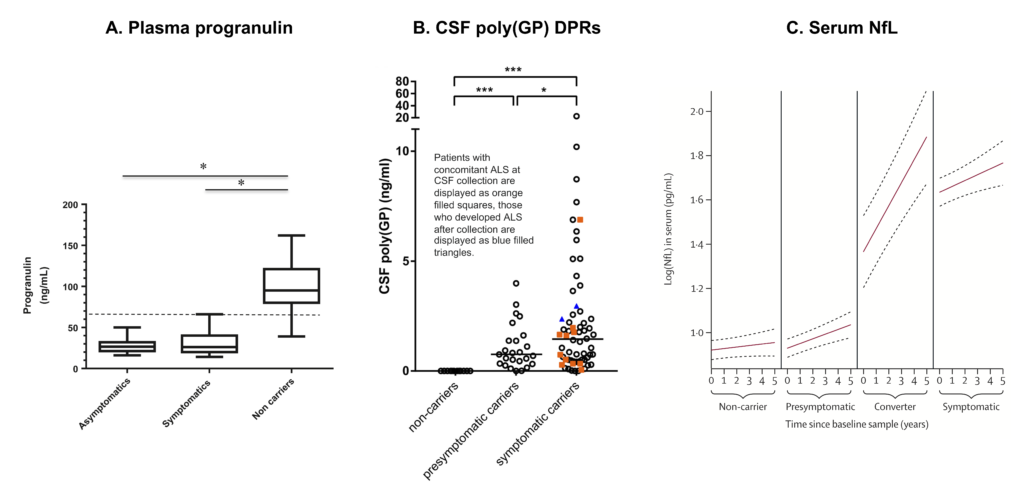Whilst we have had less chance to work in the lab during the Covid pandemic it has given us a chance to review what research has been published in our field and how best we should focus our time moving forward.
With this in mind, our fluid biomarkers team has published a research review in the Journal of Neurology, Neurosurgery and Psychiatry in which they provide an overview of the past, present and future of fluid biomarkers within the FTD field.
Fluid biomarkers are things (mainly proteins or lipids) that can be found in human fluids (spinal fluid, blood, urine or saliva) and can tell us something about what is happening in a part of our body (in the case of FTD research, the brain) that we can not easily access. Fluid biomarkers are not only extremely useful for the diagnosis of dementias but also to measure the success of treatments in clinical trials.
Even though spinal fluid, and more recently, blood markers of Alzheimer’s Disease have been successfully developed, specific markers associated with the underlying biology across the FTD spectrum are lacking.
In this review we revisited the markers that have been investigated to target different problems seen in FTD, including specific changes in proteins in the brain as well as neurodegeneration, inflammation and the health of the connections between nerve cells (called synapses).

We also provided an update of the latest methods developed for measuring such markers, including proteomics, which is the study of the proteins present in the fluids, metabolomics, the measuring of molecules from reactions happening in the body, and lipidomics, the study or the lipids.
Finally, in this review, we wanted to make clear the position of our fluid biomarker team in the field. In FTD talk we aim to investigate and develop novel markers to assess the different aspects of FTD. Our focus moving forward will be on different aspects affecting cellular function, including inflammation, lysosomal function and synaptic health.
There is much still to learn in the fluid biomarker field in FTD, but the creation of large international cohorts is facilitating better studies and will pave the way for larger molecular studies (called ‘omics’) to provide ways of combining biomarkers across fluids, brain imaging and other domains.

